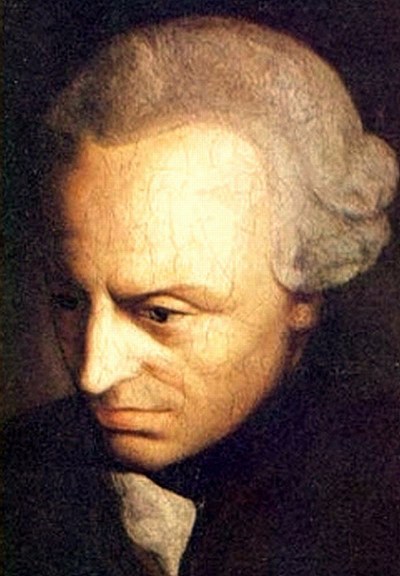John Keats, selected poems Contents
- Social and political context
- Religious and philosophical context
- Literary context
- Bright Star! Would I were steadfast as thou
- The Eve of St Agnes
- ‘Hush, hush! tread softly! hush, hush, my dear!’
- Isabella: or The Pot of Basil
- La Belle Dame Sans Merci
- Lamia
- Lines to Fanny (‘What can I do to drive away’)
- O Solitude, if I must with thee dwell
- Ode on a Grecian Urn
- Ode on Indolence
- Ode to a Nightingale
- Ode to Autumn
- Ode to Melancholy
- Ode to Psyche
- On First Looking Into Chapman’s Homer
- On Seeing the Elgin Marbles
- On the Sea
- Sleep and Poetry
- Time’s sea hath been five years at its slow ebb
- To Ailsa Rock
- To Leigh Hunt
- To Mrs Reynolds’s Cat
- To My Brothers
- To Sleep
- When I have fears that I may cease to be
Romantic beliefs
A reaction to the Enlightenment
Keats not only built upon - but also reacted against - prevailing orthodoxies, like all the Romantic poets. They saw the limitations of the Enlightenment, whose artists and thinkers had imagined themselves as breaking free from centuries of darkness and ignorance into a new era illuminated by reason, science and a respect for humanity.
Ultimately, there was a reaction against the dominance of reason, which was expressed through two literary genres:
- sentimental and Gothic literature (see Aspects of literature > Aspects of the Gothic)
- Romanticism.
European romanticism
Romanticism developed in the last quarter of the eighteenth century and was associated with the work of people such as Goethe, Schiller and Klinger in Germany and the first and second generation of Romantic poets in England.
Klinger's play Sturm und Drang (Storm and Stress) gave its name to a movement in which:
- The struggle for self-realisation of the artistic ‘genius' was central
- The power of creative imagination was given priority over the power of reason
- The poet was perceived as a seer or prophet. His/her genius (guiding spirit) enabled him/her to enter into the realities of existence. This higher ‘truth' was closed to those who relied on reason and on surface observation.
For the Romantics, imagination was not an ability to conjure up a world which wasn't ‘real' or didn't exist. Instead it referred to a capacity to penetrate reality, to have vision or insight into the inner reality of the world.
Kant’s Critique of Pure Reason
 A major source of philosophical inspiration for the Romantics was Immanuel Kant whose Critique of Pure Reason (1781) became a fundamental text. He argued that all knowledge derives from experience yet is dependent on a priori or ‘transcendental’ structures in the mind, such as the concepts of time and space. Kant also argued that notions such as God, freedom and eternity were similarly part of this transcendental realm, unknowable (because they cannot be experienced directly) but nevertheless necessary for humans to make sense of reality.
A major source of philosophical inspiration for the Romantics was Immanuel Kant whose Critique of Pure Reason (1781) became a fundamental text. He argued that all knowledge derives from experience yet is dependent on a priori or ‘transcendental’ structures in the mind, such as the concepts of time and space. Kant also argued that notions such as God, freedom and eternity were similarly part of this transcendental realm, unknowable (because they cannot be experienced directly) but nevertheless necessary for humans to make sense of reality. The significance of the imagination
To Keats, as to all the Romantics, Kant’s philosophy was attractive, since it gave an active and creative role to the mind in the formulation of human knowledge. Importantly, Kant gave a central role to the artistic imagination when it came to understanding experience. According to Kant, ‘aesthetic imagination’ is free of the laws which govern the understanding and works through symbols – a concept that pervades, for instance, Keats’ Odes.
In English Literature, it denotes a period between 1785-1830, when the previous classical or enlightenment traditions and values were overthrown, and a freer, more individual mode of writing emerged.
A European intellectual movement of the seventeenth and eighteenth centuries, also known as the Age of Reason. It sought to promote knowledge and reform society by focussing on what could be understood through reason and logic.
A French word meaning type or class. A major division of type or style in an art-form. A sub-genre is a lesser division. The main literary genres are novel, short story, comedy, tragedy, epic and lyric.
Pertaining to the sentiments and heightened sensibilities; designed to be affecting.
1. A style of fiction evoking mystery and terror. 2. Connected with or characteristic of the Middle Ages. 3. Style of architecture current in Western Europe from the 12th century to the 16th century, characterised by the pointed arch. 4. Relating to
In English Literature, it denotes a period between 1785-1830, when the previous classical or enlightenment traditions and values were overthrown, and a freer, more individual mode of writing emerged.
a key figure in the European Romantic movement. Considered a literary genius, he wrote poetry, drama, plays and even scientific works
Romantic German poet, playwright, historian and philosopher.
Someone who conveys God's message to human beings or speaks about the future sometimes through words alone, sometimes through dramatic actions.
Eighteenth century German philosopher.
The Bible describes God as the unique supreme being, creator and ruler of the universe.